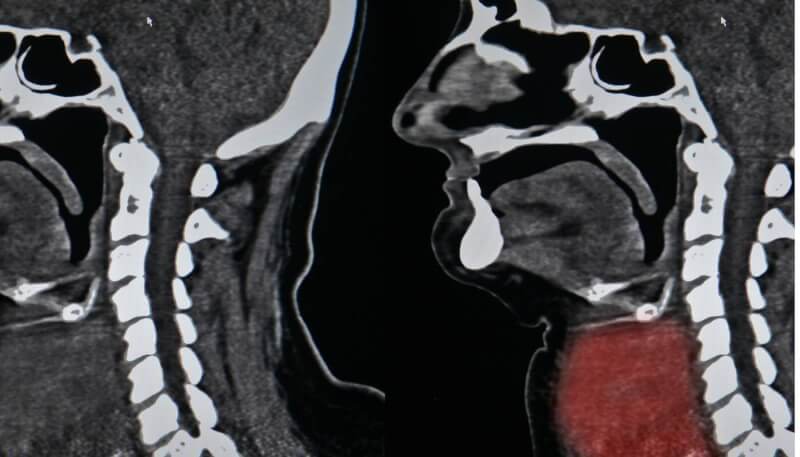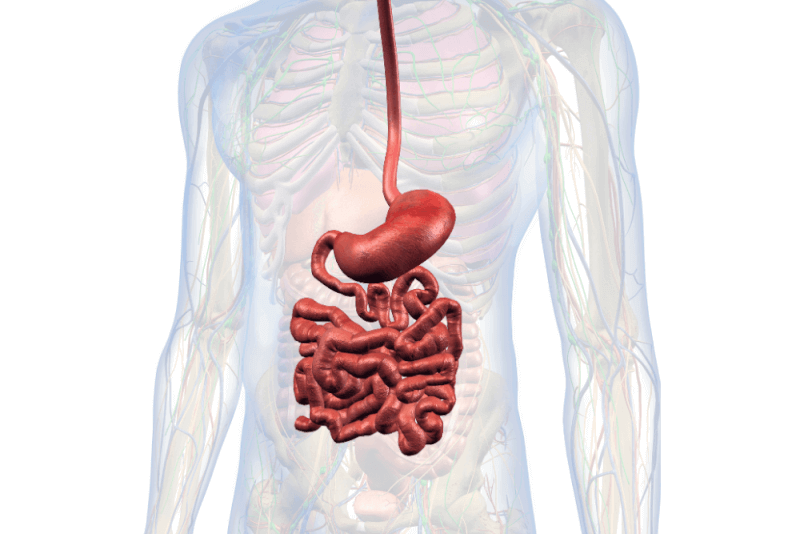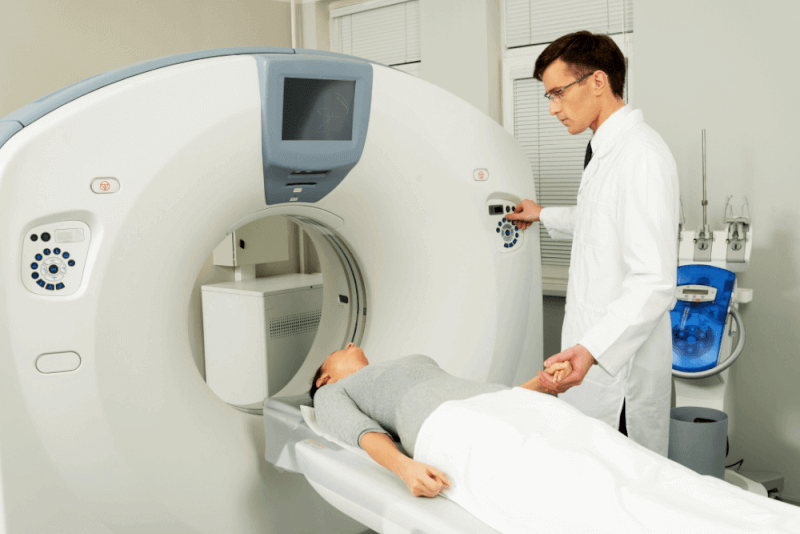30 Second Summary
- The thyroid glands are larger than normal.
- It is usually asymptomatic but can cause shortness of breath, difficulty swallowing and palpitations.
- Goiter can be caused by iodine deficiency, autoimmune diseases and familial predisposition.
- Treatment depends on the severity and type of symptoms.
What is goiter?
Goiter is basically an irregular enlargement of the thyroid gland. The irregular growth of the thyroid glands, which are just below the Adam's apple and in the shape of a butterfly, is called goiter, as well as irregular cell growths that form nodules in the thyroid glands are also called goiter. A goiter may not cause any change in the function of the thyroid gland. In some cases, a goiter can cause the thyroid gland to work too much or too little.
Diagnostic criteria for goiter
Goiter is a disease that can usually be diagnosed during a physical examination. On physical examination, the doctor can detect nodules by touching the patient's neck. Afterwards, additional tests may be requested to confirm the diagnosis and to determine the following conditions.
- Measurement of thyroid size
- Determining the cause of goiter
- Detection of the nodule
- Evaluation of thyroid function
Among the tests that may be requested to detect the above-mentioned conditions in goiter disease are the following:
- Thyroid function tests determine the values of TSH, T-4 and T-3 hormones. Blood tests are used for this.
- The antibody test also determines whether the patient has an autoimmune disease.
- Nodules in the neck are detected by ultrasonography. The size of the nodules can also be measured.
- The radioactive iodine uptake test determines the rate and amount of iodine uptake by the thyroid. This test can determine the function and cause of the goiter.
- Finally, a biopsy can be performed to determine whether thyroid cancer is present.
Symptoms of goiter
The first symptom seen in goiter patients is swelling of the thyroid glands. However, in many mites, this swelling can only be detected during medical imaging methods and medical examination. Other symptoms that may be seen in goiter vary depending on the changes in thyroid function.
Underactive thyroid
When goiter causes underfunctioning of the thyroid gland, also called hypothyroidism, the symptoms that can be seen in patients include the following.
- Burnout
- Memory issues
- Concentration problems
- Increased sensitivity to cold
- Muscle weakness
- Increased sleepiness
- Constipation
- Skin dryness
Overactive thyroid
If goiter disease causes hyperthyroidism, the symptoms that can be seen in patients include the following.
- Increased appetite
- Weight loss
- High blood pressure
- Tachycardia
- Difficulty sleeping
- Excessive sweating
- Changes in menstrual cycle
- Tremor
- Frequent bowel movements
- Irritability
- Muscle weakness
Symptoms of hyperthyroidism in children include the following.
- Rapid neck growth
- Bone growth that is inappropriate for the child's age and exceeds expected growth
- Behavior changes
Obstructive goiter
Due to the enlargement of the thyroid glands due to goiter, the respiratory tract and vocal cords can be affected. Symptoms that can be seen in this case include the following.
- Snoring
- Difficulty swallowing
- Hoarseness
- Difficulty breathing with exertion
- Cough
Causes of goiter
Goiter occurs because the function of the thyroid gland is impaired and its growth is affected. Among the situations that may cause this situation are the following.
Iodine deficiency
If the body lacks iodine, which is necessary for the production of thyroid hormone, the thyroid glands do not secrete enough. The pituitary gland then stimulates the thyroid gland to secrete more hormones. As a result of these signals, the thyroid glands enlarge so that enough thyroid hormone is secreted.
Hashimoto's disease
Hashimoto's disease, which occurs when immune cells attack healthy tissues, is one of the autoimmune diseases. If the thyroid is damaged by attacks from immune cells, it cannot produce enough thyroid hormone. This makes the thyroid glands work harder to produce more hormones. This results in enlargement of the glands.
Graves' disease
Graves' disease, an autoimmune disease, is also among the causes of goiter. In B disease, the immune system produces a protein that mimics TSH. This fake protein also causes the thyroid to overwork. The production of more hormones also causes the thyroid glands to enlarge.
Thyroid nodules
A nodule is caused by the irregular growth of thyroid cells, leading to the formation of a lump. Patients may have one or more nodules. However, the cause of nodules is unknown. Diet, lifestyle, genetic and environmental factors are among the reasons that increase the risk of nodules.
Thyroid cancer
Although it is less common than other types of cancer, thyroid cancer is also one of the factors that cause goiter. Thyroid nodules are seen in 5% of thyroid cancer patients, which is usually a treatable type of cancer.
Inflammation
The causes of inflammation in the thyroid include drugs, pathogens and autoimmune diseases. Inflammation can cause more or less thyroid hormone secretion.
Goiter risk factors
Basically everyone can have a goiter. However, some causes increase the incidence of goiter. These factors include the following.
- Iodine deficiency in the diet
- Becoming a woman
- Pregnancy
- Menopause
- Over 40 years of age
- Familial medical history
- Medicines
- Radiation exposure
Goiter complications
Goiter generally does not cause any complications. However, the appearance caused by a goiter can disturb patients. It is also possible for the goiter to block the airways and vocal cords. goiter has the potential to cause complications in multiple body systems because of the variability in hormones due to goiter.
Goiter treatment methods
Goiter treatment is based on the cause of the goiter, symptoms, size of the thyroid glands and thyroid function. In addition, patients with small goiter and normal thyroid hormones are usually kept under follow-up without any treatment.
Goiter drug treatment
Drugs used in goiter treatments are prescribed from the following drug groups.
Increasing hormone production
Thyroid hormone replacement is given in goiter patients with insufficient hormone production. For this purpose, various medications and drugs that mimic the hormones T-4, TSH and T-3 are prescribed.
Reduction of hormone production
Anti-thyroid medications are prescribed if the hormones work more than normal due to goiter. These medicines can also reduce the size of the goiter.
Blocking hormone activities
Medicines called beta brokers may also be prescribed to manage the symptoms of hyperthyroidism. These medicines can reduce excess thyroid hormones and reduce symptoms.
Managing pain
If thyroid inflammation results in pain, various painkillers can be prescribed. In case of severe pain, it is treated with steroids.
Goiter surgery
Goiter surgery is the recommended treatment method if the following conditions are seen in patients.
- Thyroid cancer
- Difficulty breathing
- Thyroid nodules causing hyperthyroidism
- Difficulty swallowing
Depending on the amount of thyroid removed, patients may be given thyroid hormone replacement after surgery.
How many hours does goiter surgery take?
Goiter surgeries performed under general anesthesia vary according to the procedure to be performed and the tissue to be removed. Goiter surgeries take 1 to 3 hours on average. After the surgery, the hospitalization period of the patients varies between 1 and 2 days. A rest period of 1 to 2 weeks is required for patients to return to their daily lives.
What are goiter surgery methods?
Goiter surgeries are called thyroidectomies. These operations involve the removal of all or part of the thyroid gland. Thyroidectomy is divided into two types.
Traditional thyroidectomy
In traditional thyroidectomy, patients are operated in a semi-sitting position with their heads tilted backwards. It is usually a procedure performed under general anesthesia. In order to make the scar less visible, an incision is made in accordance with the neck line. One or both parts of the thyroid gland are then removed. Lymph nodes that may be affected by the disease can also be removed immediately.
Transoral thyroidectomy
In the transoral thyroidectomy method, which is one of the new methods in thyroid surgery, the thyroid glands are accessed through the mouth. Therefore, there is no incision scar on the outside of the neck.
Side effects of goiter surgery
Goiter surgery also has some side effects. These side effects include the following.
- Some voice changes, especially hoarseness
- Hypoparathyroidism can result in too little parathyroid hormone and abnormally low blood calcium levels.
- Sore throat
- Esophageal injury
- Tracheal injury
- Bleeding
- Blood clot formation
- Adhesions and scar tissue that may require another surgery
Complications of goiter surgery
The most common complication in patients after surgery is the absence of thyroid hormone. In the presence of this condition called hypothyroidism, the following are among the health conditions that can be seen in patients.
- Fatigue
- Weight gain
- Cold intolerance
- Constipation
- Menstrual irregularity
- Dry skin
- Roughening of the skin
- Hair loss
- Lifeless and brittle hair
- Distraction
- Sexual aversion
- Decreased fertility
However, these complications that may occur after surgery are temporary. In addition, there are some complications that can be seen in thyroid hormone deficiency, although rare. Rare complications include the following.
- Heart diseases
- Injuries to the large blood vessels around the trachea, esophagus and thyroid glands
- Difficulty breathing after surgery due to softening of the trachea
- Thyroid crisis due to the sudden mixing of thyroid hormones into the blood during surgery
- Embolism
- Death
Radioactive iodine therapy
It is a treatment method applied in case of overactive thyroid gland. The dose of radioactive iodine is taken orally. Iodine goes directly to the thyroid glands and the radioactive substance reduces or completely eliminates hormone production. Patients may also need to use hormone replacement after this treatment.
Life after goiter surgery
After surgery, patients usually need to use thyroid replacement drugs when they return to their daily lives. If these medications are not taken, patients may experience some complications due to thyroid hormone deficiency.
The healing process of goiter
The recovery process after goiter surgery varies depending on the type of procedure performed. While the recovery period is longer after operations performed with the traditional surgical method, the recovery period of patients is shorter after operations performed with the invasive method.
Patients should pay attention to the incision sites in the days after surgery. When the patients will take a shower after the surgery depends on the doctor's opinion. During this time, slight bruising and swelling around the wound is expected. However, if the swelling is excessive, a doctor should be consulted.
Within 3 weeks after the operation, the scar turns pink and hardens. It takes 2 to 3 months for the scar to heal completely. During this period, patients should be careful not to lift heavy weights in order not to strain their necks.
Another condition seen in patients after surgery is that the neck feels stiff and numb. This changes as the wound heals. In addition, mild neck and shoulder exercises may be recommended to prevent permanent stiffness after surgery. If pain or stiffness persists, you should consult a doctor.
Within a week after the operation, the patient can start driving and non-contact sports without straining the neck. However, during the period of neck stiffness, soft foods that are easy to swallow should be preferred. In addition, drinking plenty of water during meals can make it easier to swallow food.
Goiter types
Goiter can be classified in several different ways, depending on its growth pattern and thyroid hormone levels. If the goiter is classified depending on how it grows, it is divided into three.
Goiter with nodules
In cases of nodular goiter, a lump called a nodule has formed in the thyroid gland, which can be solid or liquid. These lumps feel lumpy.
Goiter without nodules
In nodule-free goiter, also called simple goiter, no nodule is the cause of the swelling of the thyroid gland. Therefore, the thyroid glands are smooth.
Multinodular goiter
In this type of goiter, there is more than one nodule in the thyroid gland. This type of nodule may be externally noticeable or only discovered on scans.
Types of goiter
If goiter is classified according to the level of thyroid hormone, it is divided into the following types.
Toxic goiter
In toxic goiter, thyroid hormone is secreted too much because the thyroid glands are too enlarged. As a result, the levels of T3 and T4 hormones in the blood increase. The TSH hormone drops below normal levels.
Symptoms of toxic goiter
Symptoms of toxic goiter include the following.
- Palpitations
- Difficulty sleeping
- Sweating
- Fatigue
- Muscle weakness
- Trembling in the hands
- Infertility
- Restlessness
- Menstrual irregularity
- Hot and moist skin
- Protruding eyes
- Sensitivity to heat
- Diarrhea
- Weight loss
- Thinning, breakage and hair loss
Hypothyroid goiter
It is the inability of the thyroid gland to produce the thyroid hormone necessary for the body. Since thyroid hormones regulate the way the body uses energy, low levels of the hormone can significantly impair body function.
Symptoms of hypothyroid goiter
Symptoms of hypothyroid goiter vary depending on the severity of the hormone deficiency. The first symptoms of this variety are uncharacteristic symptoms such as weight gain and fatigue. In addition, the symptoms that can be seen in patients include the following.
- Fatigue
- Reduced sweating
- Constipation
- Anemia
- Skin dryness
- Loss of libido
- Sensitivity to cold
- Balance and coordination problems
- Swelling of the face, feet and hands
- Enlargement of the thyroid gland
- Hoarseness
- Memory impairment
- Muscle weakness
- Depressed mood
- Elevated blood cholesterol
- Slowing of the heart rate
- Pain and tenderness in muscles
- Thin and brittle nails
- Pain, swelling and tenderness in the joints
- Thinning hair
- Irregular menstrual periods
- Hearing problems
- Painful menstrual periods
- Insomnia
- Sparse eyebrows
In addition to these symptoms, symptoms that can be seen in adolescents and children in the presence of hypothyroidism include the following.
- Slower growth
- Delayed puberty
- Delayed tooth development
- Retardation in mental development
Congenital goiter
Congenital goiter is also called congenital hypothyroidism. It is a condition seen in every 3000-4000 live births. These babies have congenital thyroid hormone deficiency. Early diagnosis and treatment is extremely important as the disease has a serious impact on the development of babies.
Symptoms of congenital goiter
Symptoms of congenital goiter include the following.
- Constipation
- Fatigue
- Inability to maintain body temperature
- Chills
- Difficulty sucking
- Loud crying
Nutrition in goiter patients
In goiter patients, nutrition does not cure the disease, but it is extremely important in terms of supporting treatment and reducing the severity of symptoms. Among the points that patients should pay attention to in their nutrition are the following.
Ready-to-eat foods should not be consumed
Although heavily processed convenience foods do not affect the thyroid gland, they can seriously affect people's overall health. A significant proportion of the substances in these are carcinogenic and cause weight gain. For this reason, the foods that goiter patients will prefer in their diet should be preferred from the least processed ones.
Salt consumption
Patients with goiter are advised to reduce the use of table salt both to protect their general health and to support treatment. Excess salt consumption causes hypertension and cardiovascular problems.
Healthy fats
Patients should include healthy fats such as olive oil, nut oil or avocado oil in their diet. Because healthy fats support the immune system.
Reduced consumption of sweets
Another point that thyroid patients should pay attention to is the consumption of sweets. Because excessive consumption of sweets by patients leads to an increased risk of type 2 diabetes
Reducing portions
Eating too much food at meals causes a sudden increase in blood sugar. It can also cause weight gain. Patients should therefore reduce their portions.
Caffeine consumption
Patients should limit the amount of caffeine they consume during the day as it can increase the severity of symptoms such as irritability and anxiety caused by the disease.
Gluten-free diet
The presence of gluten sensitivity in the intestines affects the absorption of iodine and selenium. This can lead to patients on hormone replacement medication not getting enough benefit from their medication.
Increasing fiber intake
In order to solve the problem of constipation, which is seen in a significant proportion of thyroid patients, patients should add enough fiber-containing foods to their diet.
Water consumption
Another point that thyroid patients should pay attention to is sufficient water consumption. Consuming enough water also helps with constipation.
Maintaining vitamin and mineral levels
Nutritional deficiencies can worsen the symptoms caused by goiter. For this reason, vitamin and mineral values in the body should be constantly checked.
Vitamin D
Scientific studies have shown that vitamin D deficiency causes the development of autoimmune thyroid diseases. Adequate vitamin D intake is therefore important for reducing antibodies.
Vitamin B12
A deficiency of vitamin B12 exacerbates the symptoms of goiter, such as fatigue and loss of energy.
Selenium
Selenium is an important mineral for the regulation of thyroid hormone. In this respect, patients should include foods rich in selenium in their diet.
Iron
Iron deficiency in the body leads to the development of hypothyroidism. For this reason, ferritin levels should be kept under control to prevent exacerbation of the symptoms.
Zinc
Another mineral that is essential for the production and processing of thyroid hormone is zinc. However, since it is not possible for the body to store zinc, it should be consumed regularly.
Nutrition of patients with toxic goiter
Nutrition is particularly important for patients with toxic goitre. This is because untreated toxic goitre can cause heart problems, cerebral developmental delays, bone loss and psychological effects. In order for the treatment to be successful, patients should pay attention to their diet. Among the points that patients with toxic goiter should pay attention to in their nutrition are the following.
- Patients should not consume foods rich in carbohydrates and fats.
- They should prefer healthy options such as olive oil.
- In carbohydrate consumption, complex carbohydrates should be avoided.
- Caffeinated and alcoholic beverages should not be consumed.
- It is important to consume at least 2 liters of water a day. It is important to consume calcium-rich plant foods such as almonds, spinach and figs.
- Foods rich in selenium should be added to the diet in abundance.
- A doctor should be consulted about the consumption of non-iodized salt.
- Since milk and dairy products are rich in iodine, they should be consumed in a controlled manner.
- Since seafood is rich in iodine, freshwater fish should be preferred.
Among the foods that patients with toxic goiter should completely remove from their waistline are the following:
- First of all, patients should avoid foods containing iodine. This is because iodine increases the secretion of thyroid hormone. For this reason, soy milk, iodized table salt, seafood, dairy products and egg yolks should be avoided.
- Since thyroid diseases make it difficult to control blood sugar, foods with a high glycemic index should not be consumed in order to keep blood sugar at a normal level.
- Patients should consume foods rich in fiber. To do this, they should avoid foods that are poor in fiber, such as white flour, potatoes and fruit juice.
- Patients should not consume trans and saturated fats.
- Fastfood should not be consumed.
- Consumption of ready-to-eat and packaged foods should be avoided.
Is goiter deadly?
Goiter, a common disease, is usually not a dangerous disease. If the cause of goiter is thyroid cancer, this is more dangerous than other causes.
What is goiter cancer?
Goiter cancer, which is caused by the uncontrolled growth of thyroid cells, is also called thyroid cancer. There are many subtypes of thyroid cancer. A significant proportion of these species progress slowly. However, there are also species that show aggressive progress.
In the early stages, thyroid cancer usually causes no symptoms. However, common symptoms in patients with symptoms include the following.
- Pain in the neck and throat
- Nodule felt in the neck
- Swelling of the lymph nodes in the neck
- Hoarseness and other voice changes
- Difficulty swallowing
Does a goiter go away on its own?
Goiter is usually a disease that needs to be treated and does not go away on its own. However, if the goiter is caused by Hashimoto's disease, it goes away on its own.
Summary of Surgery
Duration of Surgery 1-3 hours
Anesthesia Method: General
Hospitalization Duration: 1-2 Days
Return to Work Period: 1-2 Weeks














